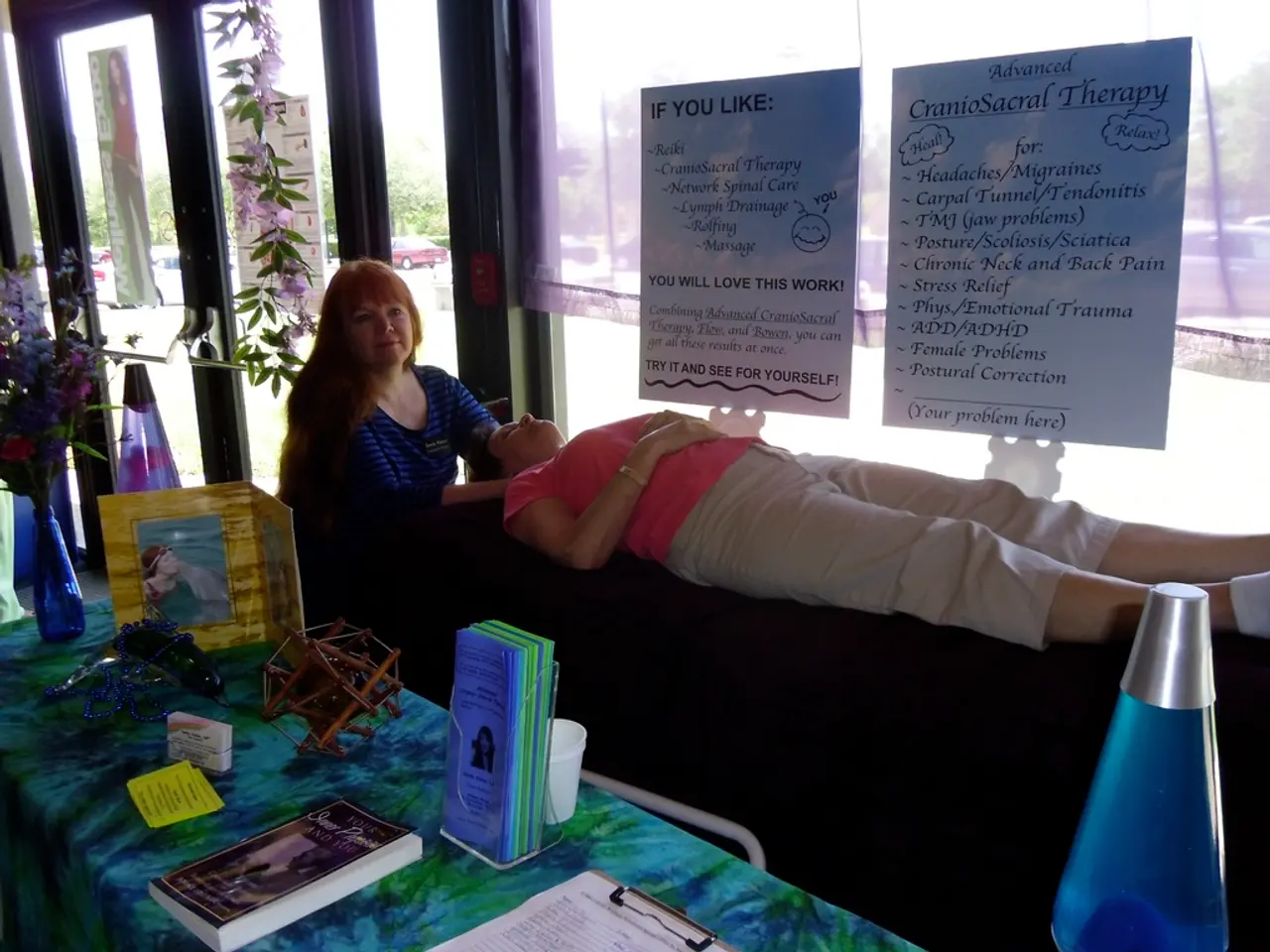Society Transformation Through Self-Connection: Insights from Rae Johnson
In a world where many are trying to make a difference but are often left feeling discouraged and depressed, Rae Johnson, a somatic movement therapist and author of "Embodied Activism," offers a fresh perspective on activism.
Johnson emphasises the importance of a balanced and sustainable approach to activism, one that encompasses not just the mind but also the body and emotional well-being. Her work aims to provide activists with the tools they need to maintain their physical and emotional health.
In her book, Johnson discusses the role of somatic movement therapy in activism. This approach fosters somatic intelligence—awareness and regulation of bodily sensations and physiological responses—which allows activists to recognise and manage the physical and emotional symptoms of burnout.
Somatic movement therapy supports activists in several ways. It enhances the body’s capacity for self-regulation and healing, addressing chronic tension, pain, dissociation, and nervous system dysregulation associated with burnout. It also acknowledges the body as a site of resistance and transformation, empowering activists to experience self-liberation through embodied practices.
Moreover, somatic movement therapy provides tools to recognise early physical signs of burnout and implement proactive care strategies, sustaining emotional and mental capacity for long-term engagement in social and political causes. It also cultivates safer embodied spaces that foster self-compassion, emotional safety, and connection, counteracting isolation and overwhelm often experienced in activism contexts.
In essence, somatic movement therapy, as Johnson discusses, supports embodied resilience by integrating mind, body, and energy awareness, allowing activists to sustainably engage with their work while preventing burnout through embodied self-care and somatic intelligence.
Johnson's approach to activism highlights the importance of self-awareness and self-compassion. She encourages activists to prioritise their own well-being in order to sustain their efforts. Listening to one's body, she believes, can make the process of change more sustainable.
Johnson expresses concern about the high levels of burnout among social and political activists. Her work offers a solution, providing activists with the tools they need to maintain their physical and emotional health, fostering a more sustainable and balanced approach to activism.
- Rae Johnson's somatic movement therapy, as discussed in her book "Embodied Activism," not only supports activists in their physical and emotional health but also emphasizes the role of mental health in sustaining activism, making it a crucial component of health-and-wellness, mental-health, and personal-growth.
- In addition to offering solutions for chronic tension, pain, and nervous system dysregulation, somatic movement therapies-and-treatments cultivate embodied spaces that foster emotional safety, self-compassion, and connection, contributing to the education-and-self-development of activists in their journey of personal growth.
- By integrating mind, body, and energy awareness, somatic movement therapy supports embodied resilience, which allows activists to maintain their well-being while engaging in long-term activism, emphasizing the importance of sustainable practices in science and activism alike.




